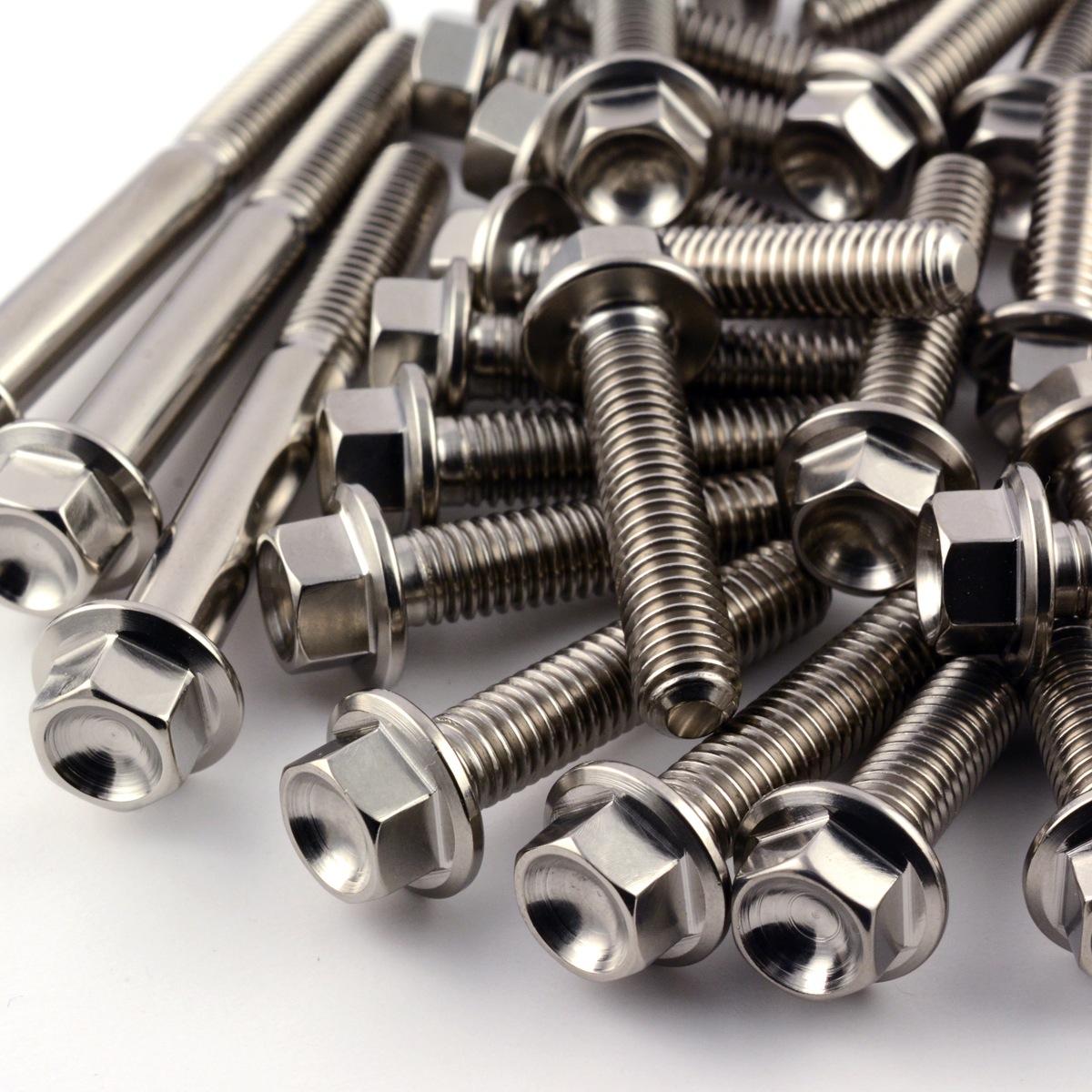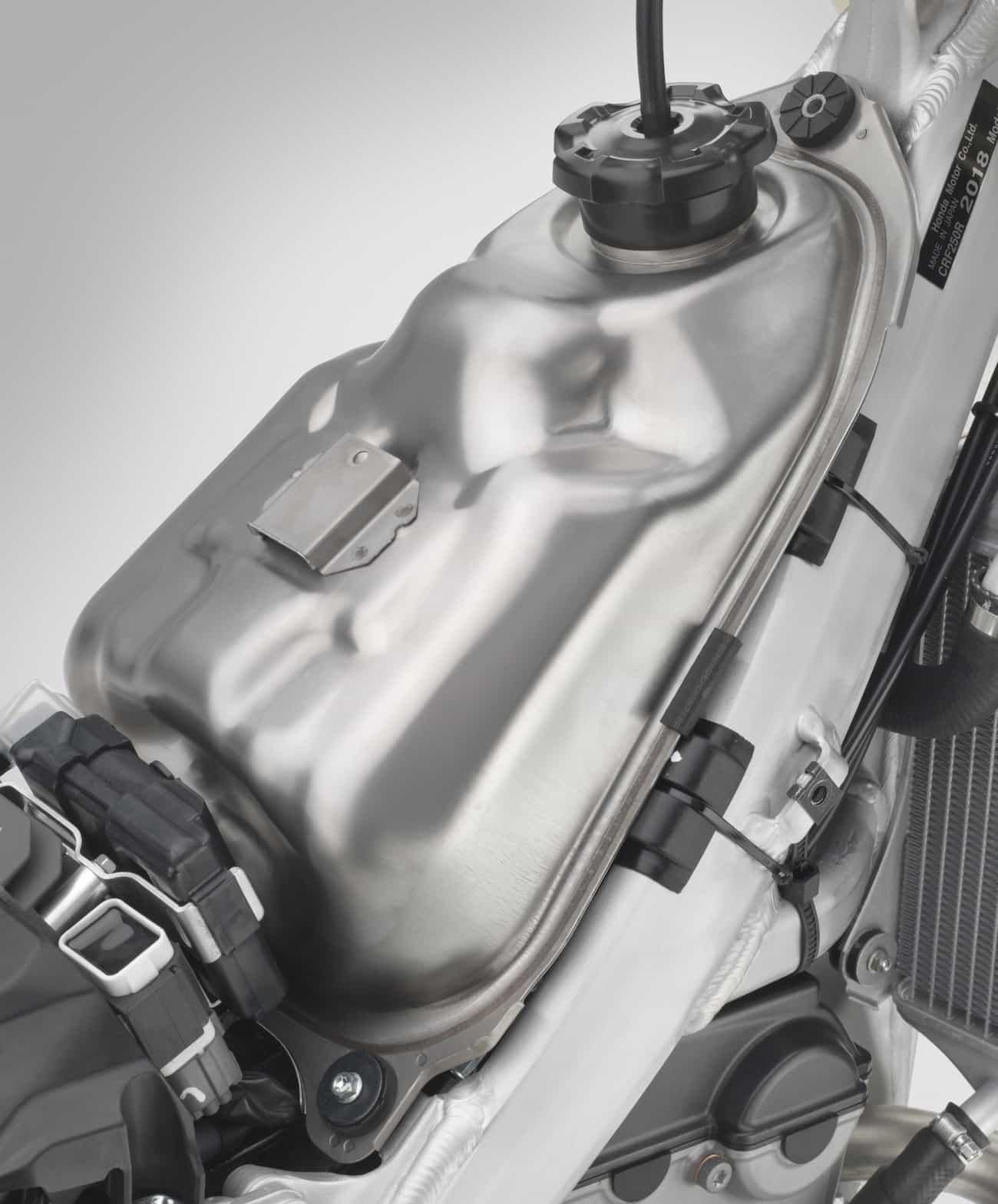ASK THE MXPERTS: THE WHEN, WHERE, HOW & WHY OF TITANIUM BOLTS
 Titanium bolts save weight on your bike and in your wallet.
Titanium bolts save weight on your bike and in your wallet.
BOLT KITS IN VARIOUS ALLOYS
Dear MXA,
I want to exchange all the bolts on my 2018 Kawasaki KX450F for titanium replacements, including the axles, tank bolts, seat bolts, fender bolts, bar mounts and subframe bolts. I’m interested in saving as much weight as possible. What do I need to know?
Titanium has a high strength-to-weight ratio. In motocross, titanium applications are used to save weight and not for strength. Every factory team utilizes titanium modifications in some capacity. Ti is expensive, and while the material costs are greater, it is the manufacturing process that accounts for most of the increased price of a titanium part over a chromoly or aluminum one. Ti fasteners aren’t just copies of stock bolts made with lighter material; the designs are more complex than the stockers, and they require additional machining. Using titanium wisely means considering more than overall weight savings.
The location of the desired weight savings determines some degree of performance. Reducing unsprung weight with Ti parts, like axles can improve suspension performance. Reducing weight away from the center of gravity of the bike with things like a Ti muffler or subframe bolt kit can help the handling performance slightly (although not always commensurate with the cost). Reducing reciprocating mass in the engine with parts like titanium valves and piston pins can increase engine performance. Titanium fork and shock springs should be given special consideration in any weight-saving situation. Titanium’s light weight and high modulus of elasticity allow for fewer coils and a more active feel. Additionally, half the weight of the springs can be counted as unsprung weight. Finally, due to the physical properties of the material, Ti springs feel springier, livelier and perform better. It is smart to have any Ti spring’s actual spring rate tested, since it isn’t always the same rate as a steel spring.
As a rule of thumb, titanium fasteners are about half the weight of steel, and aluminum fasteners are about half the weight of titanium. Aluminum fasteners are also approximately the same price as steel. The drawback is strength. Before choosing a bolt, consider each fastener’s specific duty. Is it under stress during normal operation? Is it vulnerable to sheer in a crash? Could you remove or break the bolt and still ride the bike? In the case of most bodywork bolts, aluminum is a better choice than Ti. The amount of weight saved on Ti bodywork bolts is insignificant when you can save double with aluminum bolts.
 Honda’s stamped titanium gas tank is cool, but it weighs about the same as the plastic tank it replaces.
Honda’s stamped titanium gas tank is cool, but it weighs about the same as the plastic tank it replaces.
The weight savings using titanium can be impressive—and so can the cost. A bike can lose about 3 pounds if you replace the stock axles, swingarm pivot bolt, shock linkage bolts and big fasteners with titanium. Aftermarket Ti exhaust systems are 1 pound lighter than their aluminum/stainless brothers and 2 or 3 pounds lighter than the OEM unit. A Ti shock spring can save as much as 1-1/2 pounds. As for the prices, a kit that includes axles, linkage bolts and a swingarm pivot bolt will cost over $1000. A full Ti exhaust runs anywhere from $300 to $500 over the cost of an aftermarket stainless/aluminum exhaust. A Ti shock spring is around $420.
There are a few things to watch for with Ti bolts. Titanium bolts are close to steel in terms of strength, with the benefit of being 47 percent lighter. With a Ti bolt, it is much easier to gall and bugger up threads. If left untouched, Ti bolts can seize. This is caused when two dissimilar metals contact each other in the presence of an electrolyte. The galvanic action forces one metal to corrode at a much faster rate than normal; this is especially true of titanium and aluminum. This is not a problem on a factory bike, because the mechanic takes everything apart on a weekly basis. But, it could be an issue for the casual racer. Some mechanics use waterproof grease, anti-seize compound, Loctite or a mixture of the two (careful, some may not mix). If a titanium bolt does break, the harder material is much more difficult to drill out.
If it were us, we’d forgo most of your titanium dream and focus on the exhaust system, rear axle ($350), swingarm pivot bolt ($450) and shock linkage bolts ($400). Then, get an aluminum bolt kit for the bodywork ($60).






Comments are closed.